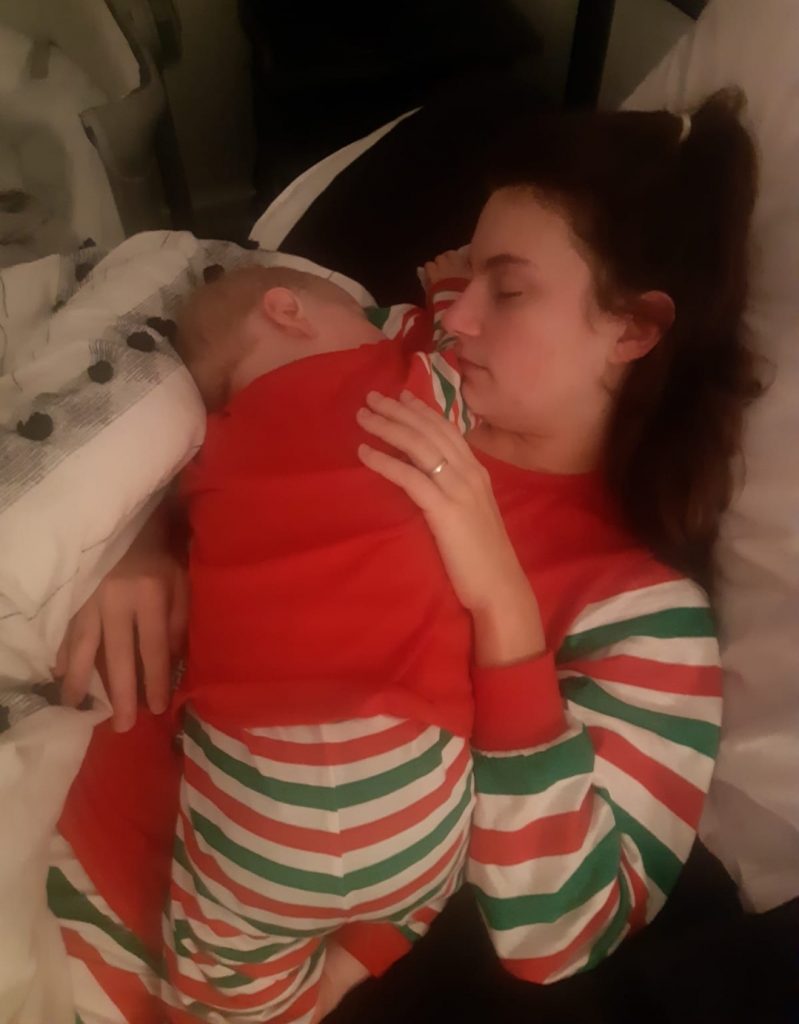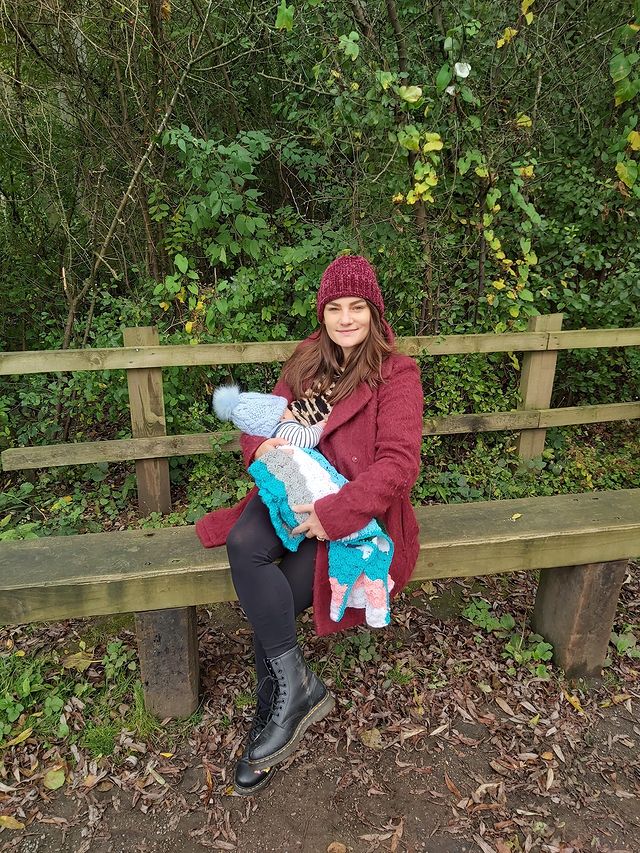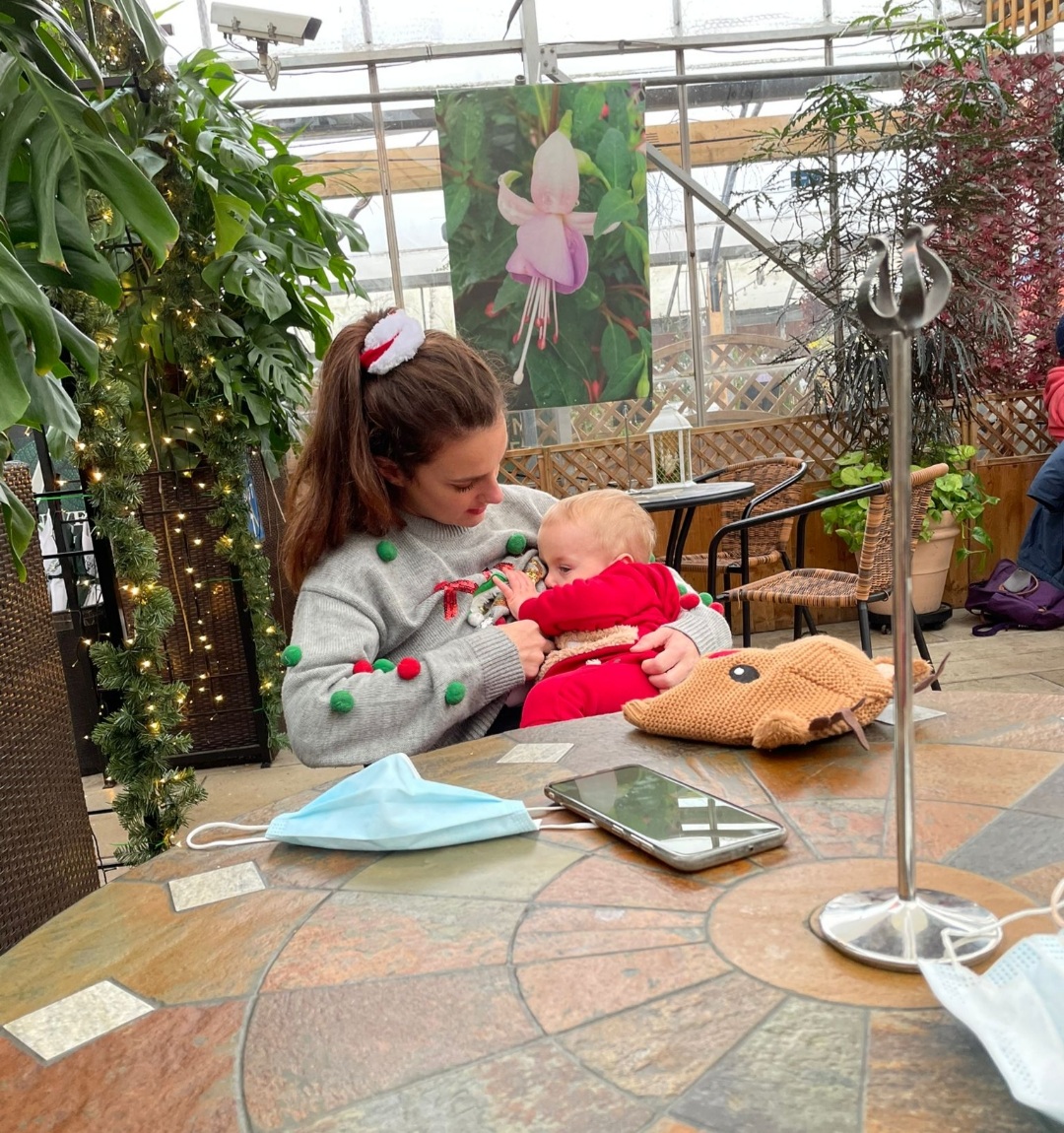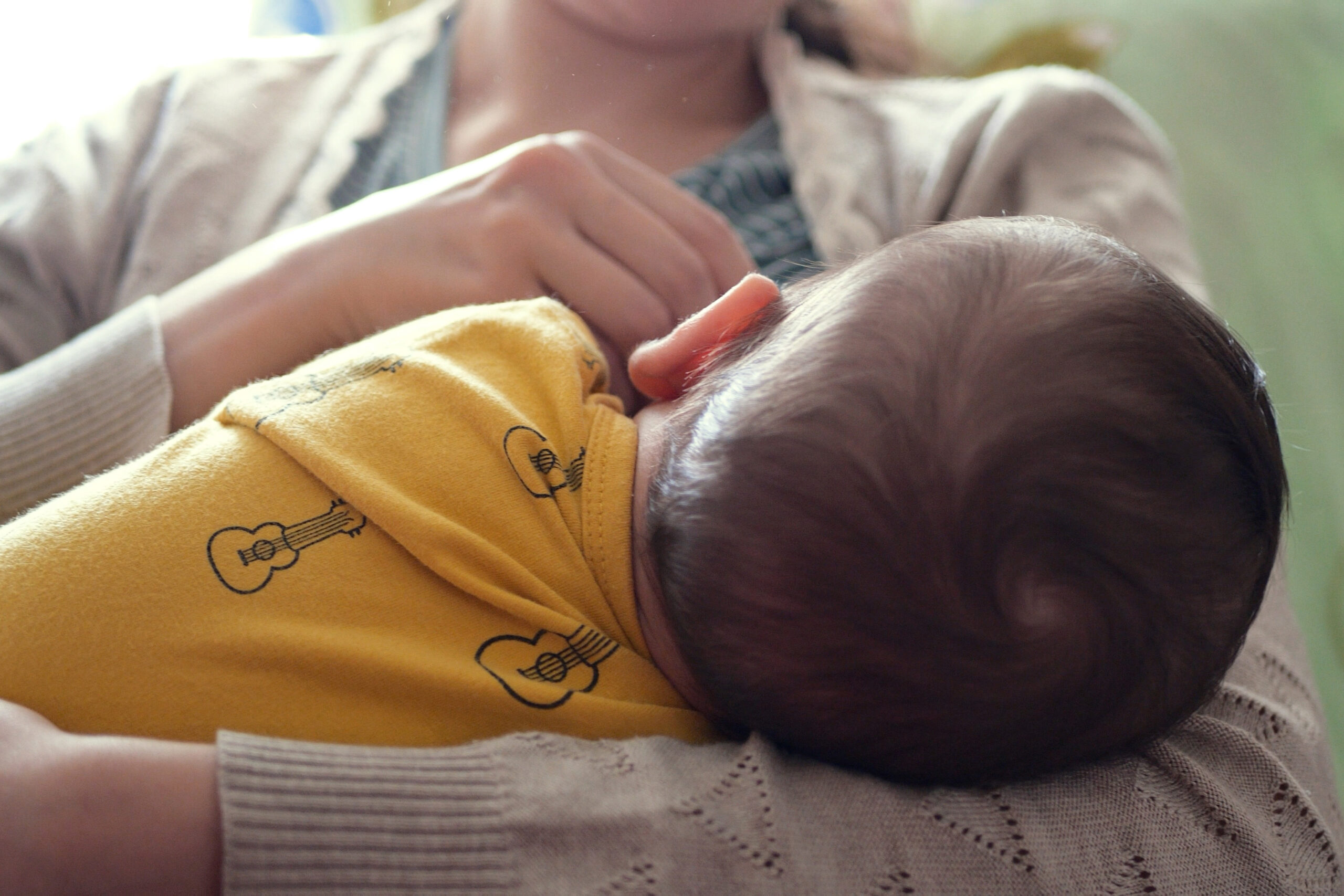Mastitis at any time of year sucks! But during the holiday season it’s definitely not something you have put on your Christmas list to Santa!
Unfortunately, cases of mastitis increase at around this time of year, so here is some information about mastitis. We’ll look at what causes it, why it happens more at this time of year, and what you can do to try and avoid it. Also, if the worse does happen and you do get a visit from the mastitis fairy this holiday season, what do you need to do?
The guidance around the treatment of mastitis has very recently changed. This can mean that old practices and advice may still be out there and being recommended but this won’t be the best way to treat mastitis if you get it. So, here is the new guidance to make sure you have the evidenced-based information you need, right at your fingertips when you need it most!
What is Mastitis?
Mastitis is an inflammation of the breast, but it isn’t necessarily an infection. Sometimes there can be a bacterial infection present, but not always. It is caused by stasis of milk, so milk not being removed from the breast which can lead to a blockage. Sometimes you can feel that ‘lump or bump’ sometimes you can’t. This blockage if it continues can lead to inflammation and mastitis. Classic symptoms of mastitis include, pain, swelling and redness.
Often women get a wedge-shaped, red patch across one breast. Be mindful though if you have a darker skin tone as this ‘classic’ red patch may not present or be so obvious, so it’s important to be familiar with your breasts so you can detect any changes early on. Mastitis can also be accompanied by a temperature, and flu-like symptoms such as aching, a headache, fever and chills. You may not get all these symptoms at the same time.
Many women who have had mastitis, describe it as coming on suddenly or feeling as if they are going down with flu. So as a breastfeeding parent, if you feel unwell, like you are getting a cold or flu, especially if you have a temperature, think could this be mastitis?

Classic symptoms of mastitis include, pain, swelling and redness.
Mastitis can affect women at any time
Mastitis can affect women at any time, but is common during lactation, with most incidences of mastitis occurring in the first couple of months after your baby arrives. During these early weeks you are more likely to have nipple damage caused by ineffective attachment, as you and your baby are both learning to get the latch right. This nipple damage can allow bacteria in, but also milk isn’t being drained well either, both things that can lead to mastitis developing.
You are fatigued, and your immune system isn’t as effective due to your recent pregnancy, making you more vulnerable to viruses, bacteria and illnesses. This milk stasis, so blockage of milk leading to inflammation can happen when your breasts become engorged. But it is also more likely when you have challenges that can cause breastfeeding to be interrupted in some way. It is more likely when you are doing too much! So, Christmas is a perfect recipe for mastitis. Family stress, visitors, and illness are all elements that can increase the risk of mastitis.
Christmas is a perfect recipe for mastitis. Family stress, visitors, and illness are all elements that can increase the risk of mastitis.
Causes of mastitis
Here are some of the issues that can lead to mastitis developing. Nipple damage caused by ineffective attachment; this can lead to bacteria having a direct route into the breast, to cause infection.
- Infrequent or ineffective drainage, so your baby not feeding well, poor attachment/latch, scheduled times of feeding, cutting feeds short or just not feeding frequently enough can lead to milk not being removed from the breast.
- Blocked ducts, milk blisters or blebs
- Missing feeds
- Stopping breastfeeding abruptly
Other mastitis risk factors include
- Tight or restrictive clothing that is putting pressure, stopping flow of milk from the breast. Seat belts on long car journeys can cause this too!
- Oversupply
- Illness in mother or baby
- Stress and fatigue.

Christmas and mastitis.
There are a few things to consider over this holiday season that can increase your risk of mastitis.
Travelling to see family and friends
Car seatbelts and restrictive clothing can cause a blockage to develop. Long car journeys where your baby sleeps for much longer than usual can mean them going without a feed, which can lead to engorgement for you. Some babies do tend to fall asleep and stay asleep in their car seats, so they may have longer periods of time without feeding. (See the Lullaby Trust for more information regarding car seat safety Car seats and SIDS – The Lullaby Trust).
Try and break up the journey by stopping for a drink for yourself and a feed for the baby, to ensure the milk is moving and you reduce the risk of blockages. Also, take some time to think through the outfits you are wearing. You want to make sure they aren’t too tight, and that you can feed in them! It’s pretty annoying to find you’ve worn the wrong bra with your Christmas outfit to allow you to feed properly.
Visitors
Now another thing that Christmas can bring is visitors! This often causes you additional stress. Hosting, entertaining, providing food and drinks etc. can put more pressure on you at a time when you are already super exhausted! It can also mean that feeds aren’t quite what they normally are. They may be a bit rushed, or your baby distracted. You may cut the feed a little short, to try and get back to your guests or you may tolerate that rubbish latch as you don’t really want to get your whole boob out in front of your father-in-law!
Hosting, entertaining, providing food and drinks etc. can put more pressure on you at a time when you are already super exhausted! It can also mean that feeds aren’t quite what they normally are.
Ineffective drainage of the milk for these reasons could cause a build-up of milk and a blockage to develop. Many guests can also mean your little one is being passed around and cuddled by everyone and by the time you get them back in your arms they are feeling a bit fussy and over-stimulated. This may result in your baby not feeding so well, or outright refusing to feed or falling asleep before you can feed them. Again, here is a situation where the milk isn’t being removed and bingo, an opportunity for mastitis to develop.
Bugs and viruses
This time of year tends to bring with it lots of bugs and viruses. We are often more run down due to all the added activities and stress of organising, shopping, wrapping etc, as well as the financial strain this time of year can have for many of us. Stress or anxiety can affect your let down reflex and just how well the feed goes. Being run down or under stress can make you more prone to a bout of mastitis.
Tips for looking after yourself
Taking a bit of extra care of yourself is even more important right now. Try to ensure you are eating well, getting rest where you can and look at trying to improve the quality of your sleep. Quantity of sleep is usually lacking for many of us with young children, so focus on making the best of the sleep you are able to get.
Another top tip to help with the stress that comes at this time of year is to and try and have some conversations ahead of time with your partner about not letting their mother/sister/aunty, go on and on that, ‘surely the baby is ready for solids now they are 3 months’, as that’s what she did in her day! Any way you can lower the stress the better!!!! Practice saying, ‘thank you for the advice, we will bear that in mind’. Or a more direct, ‘thank you but that’s not how we are choosing to do things’, can work too.
Try getting your partner on side to help fend off the ‘helpful’ but in reality, actually unhelpful comments that seem to be in full force at this time of year! Christmas can often bring more stress than joy, when you are having ‘advice’ thrown at you from all angles. Maybe plan at least one day that’s just you and whoever is in your immediate family, to spend some quiet time making some family memories, away from the hustle and bustle and pass the baby scenario that Christmas can descend into.
But what about if you have done your best with all of these things but you feel the tell-tale sign of a blocked duct, or see a red patch developing on your breast, what should you do?

Treatment for mastitis
The guidance around how we treat mastitis has changed quite recently. So, you may be told to feed more to ’empty’ the breast and to rigorously massage the affected area, but this is NOT the right approach anymore!!!
This is what you need to do.
Feed your baby responsively
Feeding responsively means following their cues or signs. You do not need to feed more, pump or express more than you ‘normally’ would. This is a big change to the previous information where we would say to do this more. The reasoning behind this is we don’t want to be encouraging more milk, just effectively removing the milk you have! Increased supply can make the inflammation worse.
Use a cold compress
Try using a cold compress or ice packs to help reduce the swelling. Avoid warm compresses as this again can increase the inflammation.
Do not use firm massage
Use gentle sweeping motions from your breast, up towards your armpit. This can help reduce the extra fluids in the breast (not the milk) that are as a result of the inflammation.
Take an anti-inflammatory
If you are able to, you can take anti-inflammatory medication such as ibuprofen, as long as you are not allergic, or they are not contra-indicated for you. They are compatible with breastfeeding. The Breastfeeding Network has lots of good information regarding medications and breastfeeding. Analgesics (Pain killers) and Breastfeeding – The Breastfeeding Network
Recognise the signs early
Not all mastitis is caused by a bacterial infection and if you identify and treat it early you can improve mastitis, even stop it in its tracks sometimes. However, if things are not improving quickly (within 24 hours) or are getting worse, then seek medical support, you may need antibiotics.
Not all mastitis is caused by a bacterial infection and if you identify and treat it early you can improve mastitis, even stop it in its tracks sometimes.
Keep feeding
The one caveat I will mention here that ‘resting the breast’ is NEVER the right advice!!! You can’t leave mastitis untreated; you have to move the milk!!! Milk not moving, infection and inflammation not being resolved, is a recipe for developing a breast abscess!!! If it’s too painful to feed, then hand express (be aware the inflammation can make the milk flow slower), take ibuprofen (as long as you are able to). Do not just leave that breast to have a break or a rest, this isn’t going to help you!!!
Here is the link to the full American Academy of Breastfeeding Medicine protocol.
Like with many aspects of breastfeeding, knowledge about how breastfeeding works is so helpful. Try and ensure you are doing some feeds during the holidays away from all the goings on. A feed in a quiet room, just you and baby not only means the feed may be a better one, but allows you both the time to re-connect a little bit. Keep an eye out for any early signs of blockages, swelling or redness and make sure you are looking after yourself too. This is one of those times that putting yourself at the bottom of the list really isn’t a good thing. Try to eat and drink well, rest where you can and try not to do too much!
Have a merry, and hopefully mastitis-free Christmas.



















